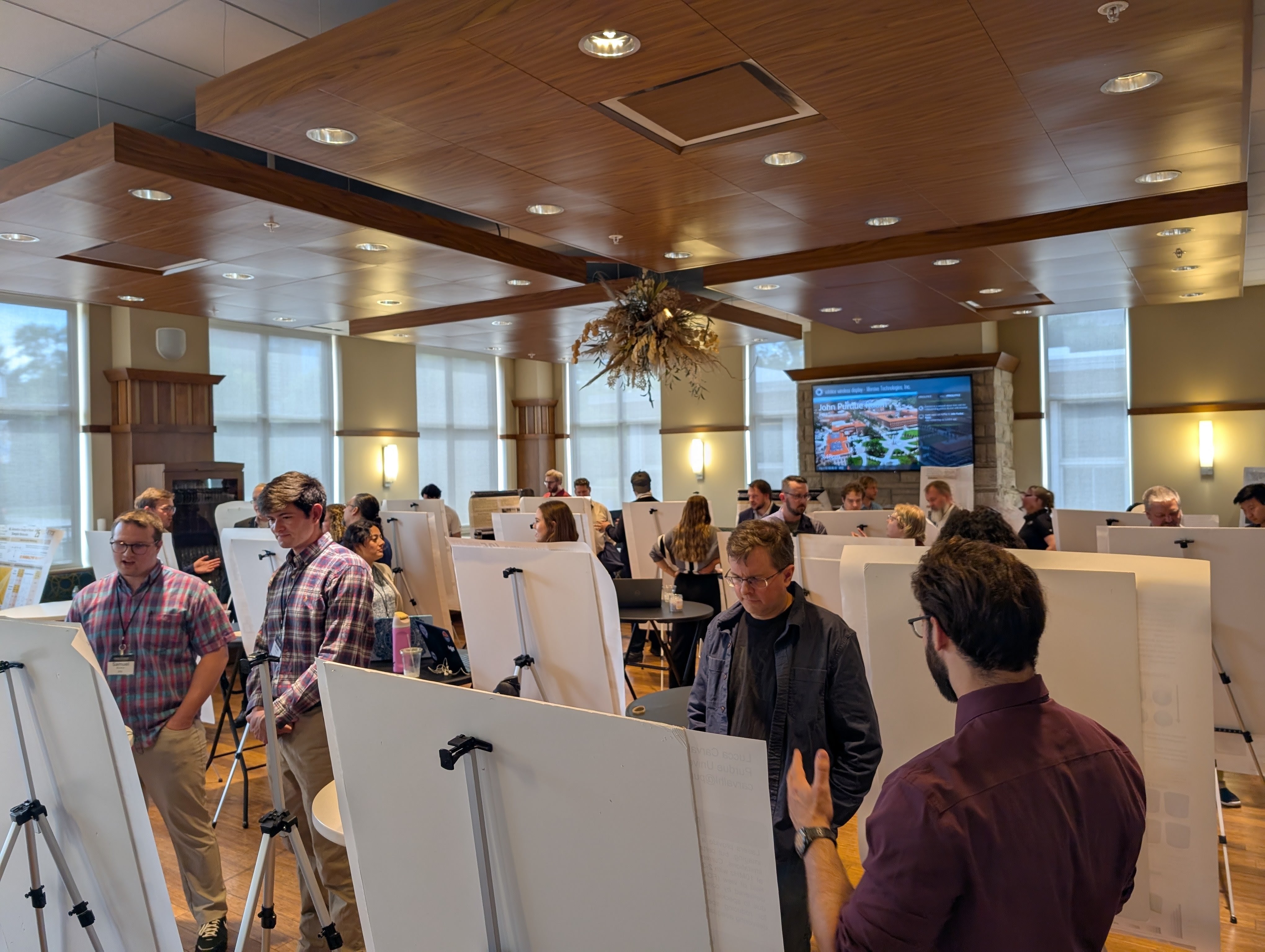
In response to this need, the Purdue Energetics Research Center (PERC) organized a combined talent showcase and technical summit event, held Sept. 22-26, that brought together students and experts across government, industry and academia.
The PERC Energetics Talent Showcase (PERC-ETS) gave 28 graduate students and postdocs from four universities the opportunity to present their research and network with recruiters from defense companies and government agencies. The Purdue Energetics Materials Summit (PEMS) brought together nearly 100 thought leaders and decision-makers in the defense, security and academic communities to discuss key challenges and potential technical solutions associated with energetic materials.
“This year’s event clearly demonstrated the strengths of our nation’s energetics community; the importance of collaboration across government, academia and industry; and the commitment of our community to driving science and technology forward,” said Stephen Beaudoin, director of PERC and professor in the Davidson School of Chemical Engineering. “By creating a space where students, researchers and practitioners can connect, we’re ensuring that the talent and ideas needed for future breakthroughs are identified and supported.”
Energetics are a type of material with a high amount of chemical energy stored in their molecular structure. PERC focuses on comprehensive energetics materials research — from molecules to manufacturing. It supports the U.S. need for more stable, less sensitive and more easily processed energetic materials and provides an avenue for highly trained, clearable talent to enter the defense workforce.
This is the first year that both events were hosted concurrently. It was the second year for the now-annual PERC-ETS and the fourth for the biennial PEMS.
“Hosting both events side by side highlights the full spectrum of PERC’s mission, from advancing cutting-edge research to preparing the future workforce,” Beaudoin said. “We hope these events will help to accelerate progress and build a stronger, more connected energetics ecosystem.”
Both students and speakers covered a range of topics, including diagnostics and characterization, safety, and advanced manufacturing. The 34 individuals who gave talks at PEMS represented seven universities, four private companies, and 10 defense agencies or national laboratories. Including Beaudoin, seven of those speakers are faculty or staff members at Purdue:
- Daniel Guildenbecher, associate professor of mechanical engineering
- Alejandro Strachan, the Reilly Professor of Materials Engineering
- Monique McClain, assistant professor of mechanical engineering
- Terrence Meyer, professor of mechanical engineering
- Diane Collard, PERC research scientist
- Zachary Hillman, graduate research assistant in the Davidson School of Chemical Engineering